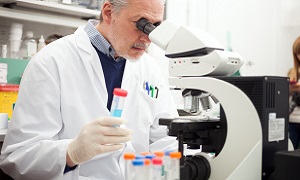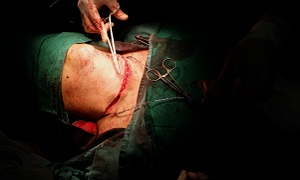Best Doctors in India for Goiter Treatment
Best Hospitals in India for Goiter Treatment
- City: Bengaluru, India
Hospital Highlights:
- Fortis Hospital Bannerghatta, Bengaluru was established in 2006.
- The hospital is a 276 bedded multi-specialty tertiary care facility.
- The hospital specializes in cutting-edge medical technology and dedicated patient care services.
- The hospital is equipped with state-of-the-art technologies like trans-radial angioplasty, trans-abdominal cardiac surgery, and computerized TKR navigation surgery.
- The hospital provides specialty medical services in cardiology, cardiac surgery, orthopedics, neurology, neuro-surgery, GI, and Minimal Access Surgery (MAS).
- City: Chennai, India
Hospital Highlights:
- Fortis Malar was established in 1992 and was formerly known as Malar Hospital.
- The hospital specializes in cutting-edge medical technology and dedicated patient care services.
- The hospital is multi-specialty, tertiary care facility with 180 beds.
- The hospital offers comprehensive medical care in specialties such as cardiology, cardio-thoracic surgery, neurology, neurosurgery, orthopedics, nephrology, gynecology, gastroenterology, urology, pediatrics, and diabetes.
- City: New Delhi, India
Hospital Highlights:
- Established in 1996, Pushpawati Singhania Research Institute is one of the top hospitals in the NCR region, as well as one of the top facilities in India for gastroenterology. The hospital is one of South Asia’s first institutes in medical and surgical treatment for diseases related to digestion.
- The hospital is equipped with state-of-the art facilities coupled with the latest equipment as well as renowned consultants from various parts of India as well as other parts of the world.
- City: New Delhi, India
Hospital Highlights:
- State-of-the-art technology and devoted healthcare professionals have been brought together under one roof at Venkateshwar Hospital to provide genuine medical care. The hospital’s professionals work together as a team to deliver the best possible treatment to their patients, using the most sophisticated equipment and information technology.
- Venkateshwar Hospital’s mission is to attain global excellence in healthcare by employing evidence-based, ethical clinical practices and cutting-edge technology by a team of highly skilled experts.
- City: New Delhi, India
Hospital Highlights:
- Sir Ganga Ram Hospital, New Delhi is known to provide the latest medical procedures with the latest technology in all of its units.
- The hospital has a team of reputed doctors, nurses, and healthcare professionals that ensure that patients receive quality care at affordable costs.
- Staffed with a team of highly qualified doctors, dedicated nurses, and paramedical and non-medical staff, the hospital aims to lead in healthcare delivery, medical education, training, and research.
- As per the vision of the founder, the hospital also provides free treatment to the economically weaker sections of society.
- Sir Ganga Ram Hospital also provides training to young doctors under the Diplomate in National Board(DNB) program. The DNB program at the hospital was started in 1984 and it is known for currently running the maximum number of DNB specialties in the country. It also has the distinction of having the first bone bank in India.
- City: Kerala, India
Hospital Highlights:
- Established in 2019, Apollo Adlux Hospital is the first Apollo Hospital in Kerala and the 73rd hospital owned by Apollo Group in India. With the state’s most advanced, comprehensive healthcare infrastructure and cutting-edge technologies, Apollo Adlux Hospital stands as an example of medical excellence in Kerala.
- With over 34 multi-specialty departments, the hospital believes in providing the best quality treatment to its patients at affordable rates, ensuring comfort at their difficult times.
- The 300-bed hospital is managed by a team of highly qualified and experienced experts who delivers exceptional hospitality to their patients and treats them with great compassion.
- With its affiliation with the Apollo Hospitals Group, the hospital aims in providing patients with top-notch healthcare services while also serving communities in Kerala.
- The hospital has good railway and road connections, and is conveniently close to Cochin International Airport.
- City: Gurugram, India
Hospital Highlights:
- Situated near DLF Cyber City, Gurugram, Narayana Superspecialty Hospital is one of the top medical facilities in the Delhi NCR region, catering to the needs of the people. Known for its commitment to quality medical care and patient service, the hospital is a state-of-the-art facility with planned and well-equipped sections, which includes a spacious OPD area as well as comfortable patient rooms.
- It is the closest super-specialty hospital from Indira Gandhi International Airport towards Gurugram, and also the nearest super specialty hospital from DLF Cyber City. It is also close to major residential areas in Gurugram.
- It is part of the renowned Narayana Health Group. Established in 2000, by Dr. Devi Shetty, a renowned cardiac surgeon, it has grown to be one fo India’s leading healthcare groups.
- City: Noida, India
Hospital Highlights:
- Fortis Hospital, Noida, stands as one of the oldest and most trusted healthcare institutions in the region, setting a benchmark for comprehensive medical care.
- As the second mega hub hospital in the Fortis Healthcare Group, Fortis Hospital, Noida, upholds a legacy of trust among more than 1.2 million patients. By integrating top-tier professionals with cutting-edge technology, the hospital delivers superior treatment across various medical disciplines.
- Specializing in advanced Neurosciences, Orthopedics, Kidney and Liver Transplant Programmes, Fortis Hospital, Noida has successfully performed over 1,500 transplants, solidifying its reputation as a leader in specialized medical interventions.
Goiter
Goiter is a condition where your thyroid gland gets abnormally enlarged. Your thyroid is a butterfly-shaped gland which is located at the base of the neck just below the Adam’s apple. Goiters are generally painless, but if it gets too large, it can make it hard for you to swallow or breathe.
Generally, lack of iodine is the most common cause of goiters. In places such as the United States, where the use of iodized salt is quite common, a goiter is mostly caused by over or underproduction of thyroid hormones.
Treatment can vary depending on the size of the goiter, the symptoms as well as the cause. Since small goiters are not noticeable and don’t cause problems, they generally don’t need any treatment.
Symptoms
The primary symptom of a goiter is generally a noticeable swelling in the neck. If you have nodules on your thyroid, they might range in size from very small to very large. The presence of nodules might also increase the appearance of swelling.
Some other symptoms include the following:
- Difficulty in swallowing or breathing
- Coughing
- Dizziness when you raise your arm above the head
- Hoarseness in your voice
Causes & risk factors
The most common cause of goiters is iodine deficiency. Iodine is important to help the thyroid produce thyroid hormones. When you don’t have enough iodine, the thyroid needs to work extra hard to make thyroid hormone, which can cause the gland to grow larger.
There might also be a few other causes which include:
- Graves’ disease – Graves’ disease is a condition that occurs when your thyroid produces more thyroid hormone than normal. This is also known as hyperthyroidism. The excess production of hormones can make the thyroid increase in size.
- Inflammation – Some people develop thyroiditis, an inflammation of the thyroid which can lead to a goiter.
- Hashimoto’s thyroiditis – Hashimoto’s thyroiditis is a condition, which predisposes the thyroid not being able to produce enough thyroid hormone. This leads to hypothyroidism. The low thyroid hormone can cause the pituitary gland to create more thyroid-stimulating hormone, which can cause the thyroid to get enlarged.
- Nodules – Solid or fluid-containing cysts can appear on the thyroid, causing it to swell. These nodules are generally noncancerous.
- Thyroid cancer – Cancer can affect the thyroid, which can lead to swelling on one side of the gland. However, thyroid cancer is not as common as the formation of benign nodules.
- Pregnancy – Sometimes pregnancy can also cause the thyroid to get larger.
]
You are more likely to have a goiter if you:
- Have a family history of thyroid cancer, nodules, and any such problems that affect the thyroid.
- Have a condition that can decrease the iodine in your body.
- Don’t get enough iodine in your diet.
- Are female- Women generally a higher risk for this condition than men.
- Are over 40 years of age- Aging can also affect the health of your thyroid.
- Are pregnant or going through menopause- These risk factors are not understood easily, but pregnancy and menopause can trigger problems in the thyroid.
- Have undergone radiation therapy in the neck or chest area. Radiation can change the way the thyroid is able to function.
Types of Goiters
Since there are many things that can cause your thyroid to swell, there are also multiple types of goiters. Some of them include:
- Simple goiters – They occur when your thyroid gland is unable to make enough hormones. To make up for this, your thyroid can grow larger.
- Endemic goiters – Also termed as colloid goiters, this is caused by a lack of iodine in your diet. Your thyroid uses iodine to create its hormones. In countries where iodine is added to table salt, lesser people get this kind of goiter.
- Multinodular goiters – These occur when lumps called nodules grow in your thyroid.
- Sporadic or nontoxic goiters – These types of goiters generally have no known cause. Certain drugs or medical conditions may trigger them.
When a goiter is linked to hyperthyroidism, it is described as toxic. This means that your thyroid makes too much thyroid hormone. A goiter which is non-toxic doesn’t lead to hyperthyroidism or hypothyroidism.
Diagnosis
Your doctor might discover an enlarged thyroid, by simply feeling your neck as well as having you swallow during a routine physical exam. Your doctor might also be able to feel the presence of nodules in some cases.
Diagnosing a goiter can also involve:
A hormone test
An antibody test
Ultrasonography
A thyroid scan
A biopsy
Treatment
Depending on the cause of your goiter, and how serious it is, your doctor can suggest the following treatments:
Medication
Surgery
Radioactive iodine
Complications
Although small goiters that don’t cause any physical or cosmetic problems are not a concern, large goiters can lead to multiple complications, such as difficulty in breathing or swallowing.
Goiters resulting from other conditions such as hypothyroidism or hyperthyroidism can be associated with a number of symptoms, ranging from fatigue and weight gain to unintended weight loss, irritability as well as trouble sleeping.













